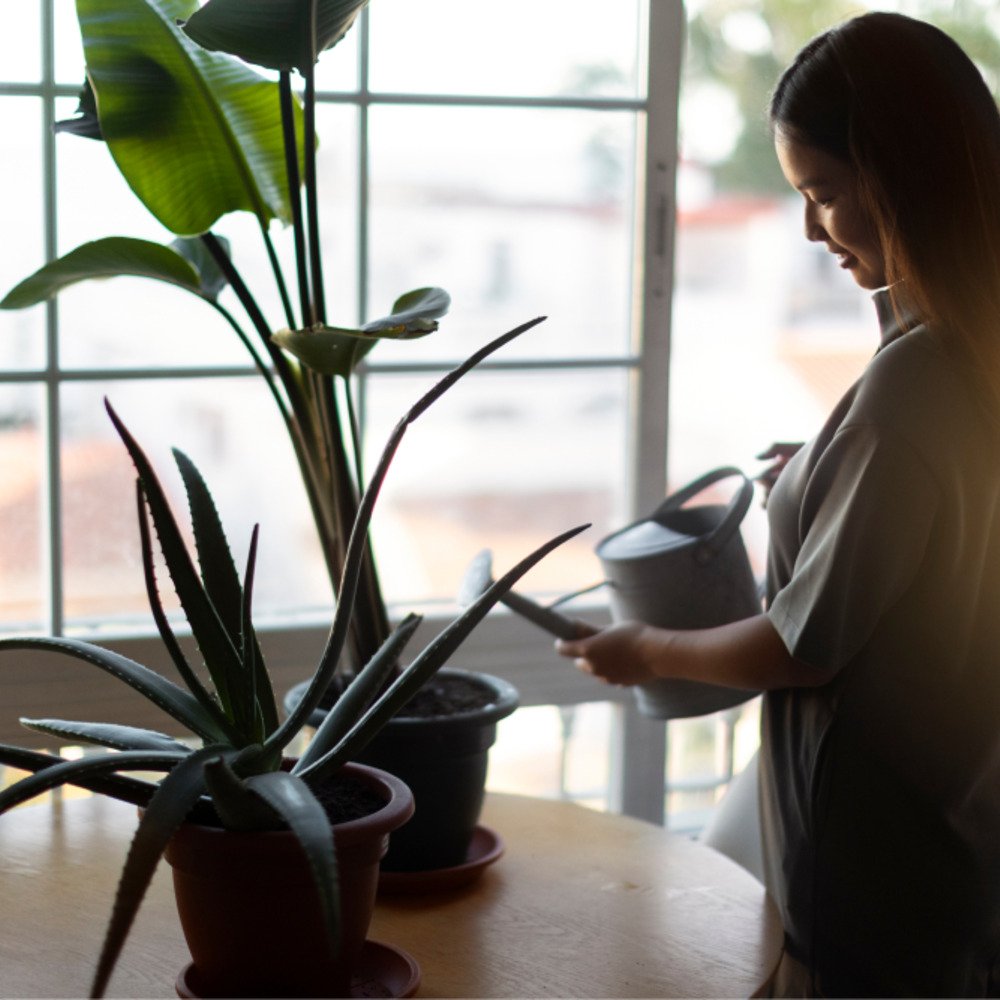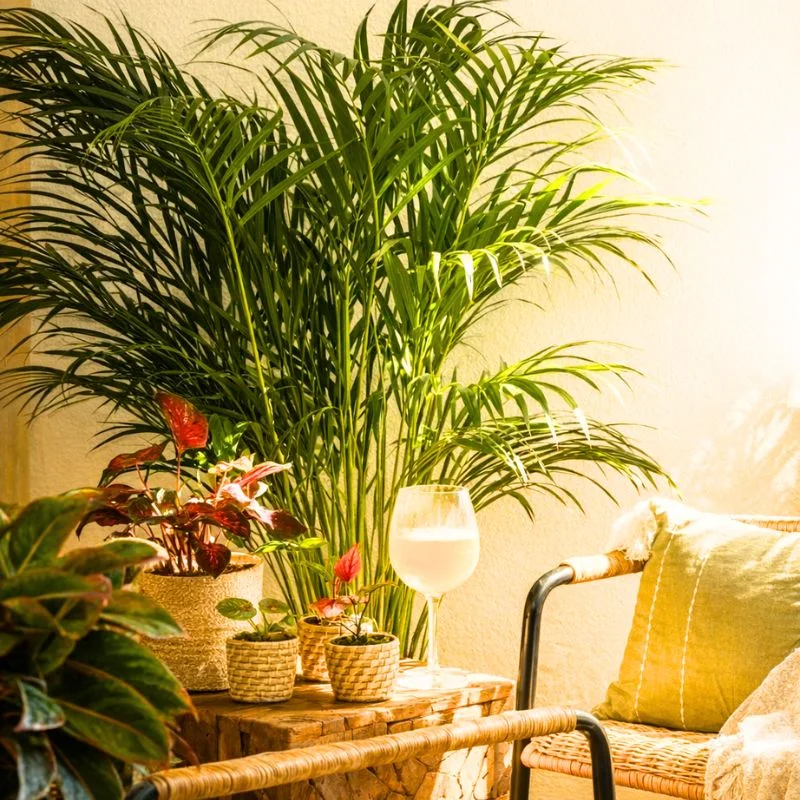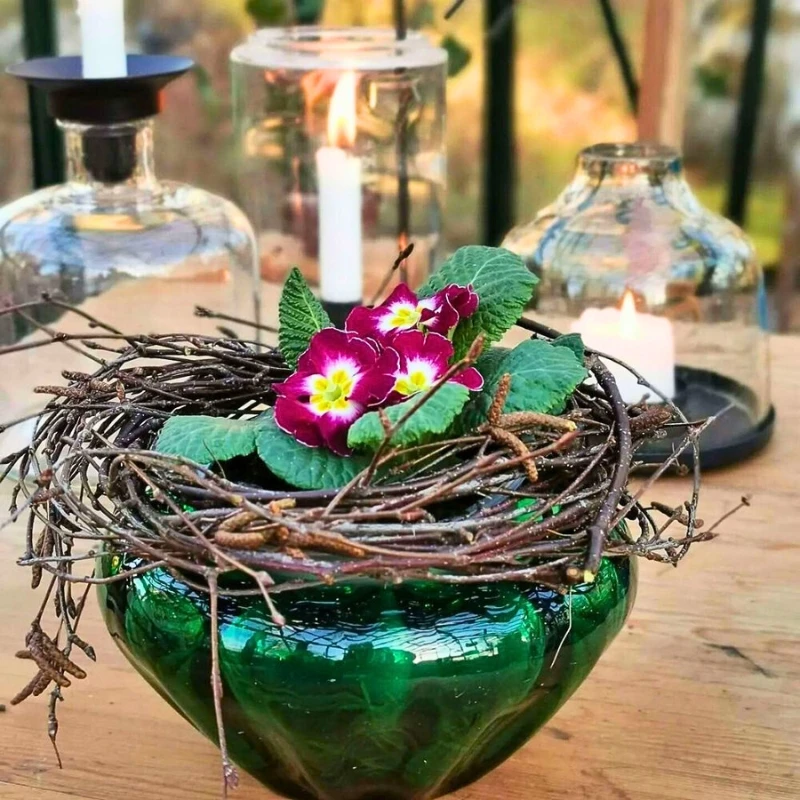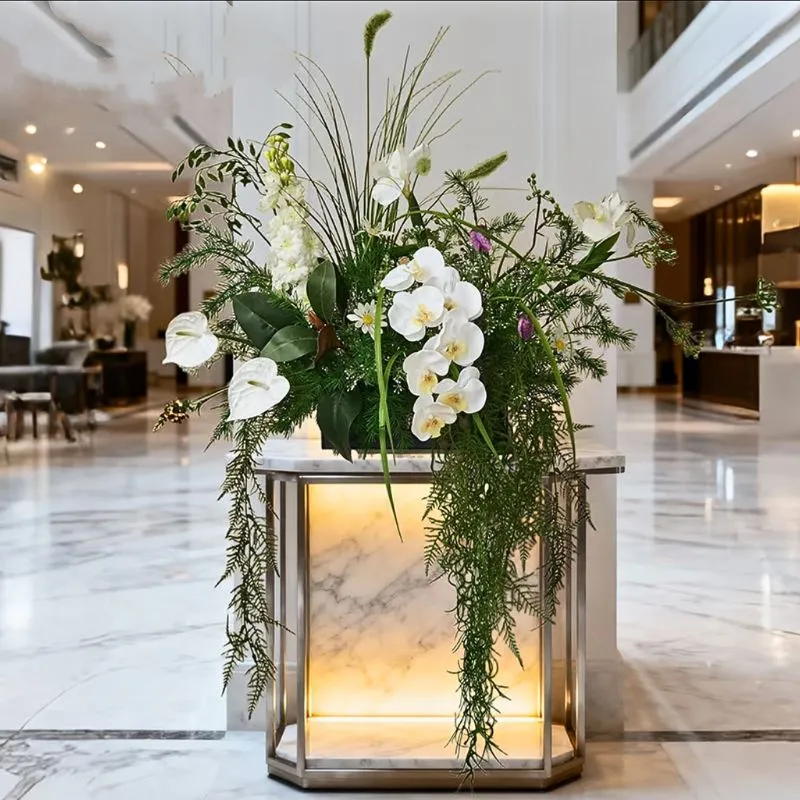In our technological, built-up world, we rarely enjoy nature, but it has much to do with our lives. In today's article, we will look at how plants affect productivity, the benefits of plants in the office, and which indoor plants to choose for you.

Breathe-in, Stress-Out: The Stress-Relieving Benefits of Greenery at Work
Adding indoor plants is a solid remedy to professional stress. The effect of flora is critical in changing the working atmosphere into a quiet and stress-relieving one. Going green in the workplace will relax and help you concentrate. Numerous studies have emphasized the stress-relieving properties of plants, attributing these advantages to the visual attractiveness and natural aesthetics they provide to the workplace. Since indoor plants have been associated with lower levels of the stress hormone cortisol, bringing green friends into the office may help create a calm environment where workers can relax and handle work-related stress more effectively.
Because of their aesthetic value and capacity to clean the air, plants help to create an atmosphere that promotes general wellness. People may refuel their mental and emotional energies by tending to plants, which provides a tranquil and soothing diversion from the strains of daily tasks. Staff members foster a sense of connection with the natural world and offer a therapeutic escape from workplace pressures by caring for, pruning, or just enjoying their green buddies. Essentially, the stress-relieving effects of indoor plants go beyond aesthetics, providing a working sanctuary where employees may breathe in peace and find refuge despite the hardships of their daily routines.
Caring for Plants in the Office - 6 Useful Tips
-
Create a plant care schedule:
Make a general plant care schedule for team members, alternating responsibilities on a weekly or monthly basis. This will ensure consistent care and promote teamwork and collective responsibility. You can use the plant as a workplace outlet and put her watering schedule on your team management app.
-
Choose plants that are team-friendly:
Choose low-maintenance and sustainable plants that are suitable for collaborative care. Plants such as serpentine, potted, or succulents take root well in an office environment and require minimal attention, making them ideal for busy teams.
-
Include plants in team-building activities:
Use plant care as a team-building activity. Consider organizing planting sessions or creating a community garden. These hands-on experiences promote team building and add a creative and positive aspect to the company culture.
-
Celebrate milestones and growth:
Recognize and celebrate milestones in the life of office plants. Recognizing these moments can become a metaphor for the team's accomplishments, fostering a positive and growth-oriented mindset, whether a new leaf or a blooming flower.
-
Create a "green corner"
Create a dedicated green corner or space in the office with plants where employees can gather, relax, and socialize. Such a dedicated area enhances the aesthetic appeal of the workspace and creates a favorable environment for informal communication, fostering a positive corporate culture.

Desk Buddies: Furnishing Your Workplace
Choosing the right office plants as desk neighbors is very important for those who want to green up their workplace. Choosing low-maintenance plants ensures that a healthy office garden benefits everyone, even those with no talent for flower care and who have "withered cacti."
Choosing plants for the office depends on lighting conditions, level of care, and personal preference. Here are a few plants that are often suitable for office environments:
-
Sansevieria
Low maintenance, surviving in low light. Cleans the air of toxins.
-
Chlorophytum
Resilient and easy to care for. Effectively cleans the air of pollutants.
-
Zamioculcas
Low maintenance, hardy. Helps maintain humidity.
-
Ficus Elasticus (Rubber Tree)
Adapted to low light, requires moderate watering. Improves air quality.
-
Lilac (Spathiphyllum)
Likes shade and moderate light, requires regular watering. Cleans the air and promotes moisturization.
These succulents are renowned for their resilience and capacity to flourish in low light levels. Professionals who are often on the road will love these low-maintenance plants. Furthermore, plants such as succulents and cacti are versatile and can grow in various settings with moderate sunshine, making them helpful office allies. You can find a place for them if you have a few sunny spots in your office.
Go beyond the typical containers and add plants to your workplace décor to give it an original feel. Think of hanging planters, wall-mounted pots, or even incorporating plants into the overall design of your office furniture. Green partitions or living walls are attractive design elements that improve air quality and create a sense of well-being. Plants can be neatly incorporated into storage drawers, desks, or socializing areas, transforming the office into a bright and pleasant atmosphere. People can create a more sophisticated and stimulating workplace atmosphere by carefully selecting low-maintenance office plants and finding new ways to incorporate them into the overall design.

Above and Beyond Design: The Practical Use of Plants in the Office
Plants play a significant helpful role in the workplace in addition to their aesthetic appeal, offering several advantages beyond simple decoration.
- Temperature management is one prominent function since plants may adjust the ambient temperature of a room. Plants may help chill their surroundings by releasing water vapor via transpiration. This natural cooling effect is especially beneficial in office areas with fluctuating temperatures.
- Plants strategically placed throughout the workstation can help create a more pleasant and balanced environment, eliminating excessive dependence on artificial heating or cooling systems.
- Indoor plants act as natural sound absorbers, lowering ambient noise in busy office situations. Plants' leaves, stems, and branches may absorb and deflect sound waves, resulting in a calmer and more concentrated work environment. This is especially useful in open workplace layouts where noise may be distracting.
- Plants play an essential function in air cleaning by filtering out common pollutants and poisons. Certain plant species have been found in studies to remove dangerous compounds from the air, such as benzene, formaldehyde, and trichloroethylene, improving indoor air quality and producing a healthier workplace for employees.
Acknowledging plants' functional roles in temperature regulation, noise reduction, and air purification emphasizes their relevance as significant additions to a well-rounded and efficient office environment.










